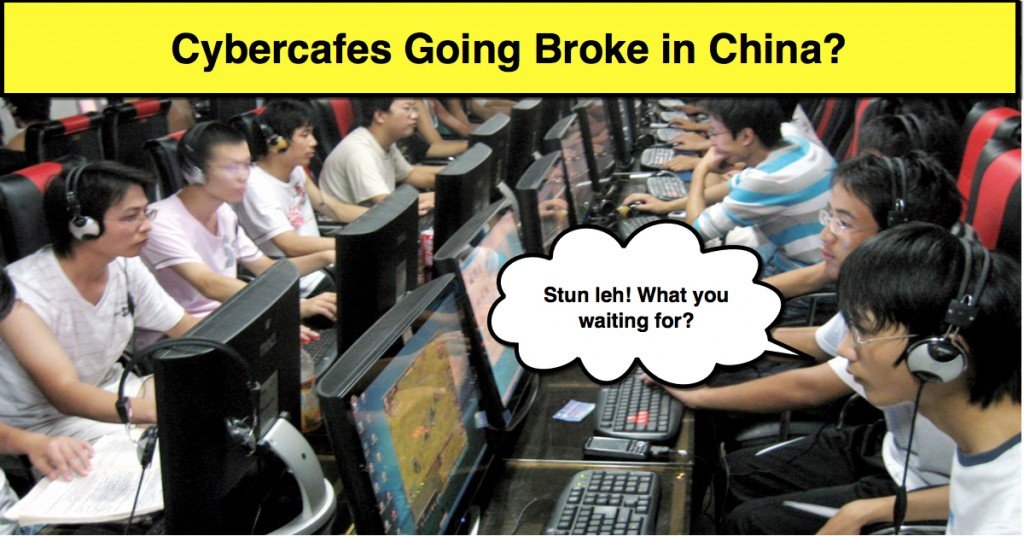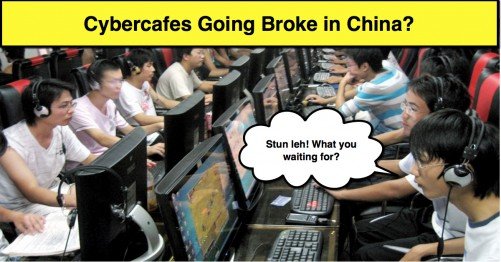Do you know why despite a huge 1.3 billion population, cybercafes in China struggle to stay afloat? Is China Cybercafe losing money fast?
And do you know there are some Economics Principles behind this phenomenon?
For those that do not know what is a cybercafe, it is typically a dark commercial unit cramped with many PC terminals leased to students and young adults on an hourly basis for gaming, watching video and surfing the web. It is largely a social place for students to get together to play cyber games together.
Many cybercafe owners in China may think that it is easy to run such business, given a higher disposable income of middle income family and the one-child policy: parents now days are more willing to spend more on their only child, which includes cyber entertainment.
However for such business model, they have very high start-up cost such as rental deposit of at least two to three months as well as purchases of latest computers and PC games. They would require their cafes to be at least 90% packed for one to two years before they can break even. But what is stopping them for even breaking even?
Government Regulation
The Chinese Government realized that more and more youths have been indulging in cyber games in the past ten years since the liberalization of Internet in China. This has caused many social problems like addiction to gaming and even youths threatening/beating up their parents to obtain pocket money for gaming. This problem is no longer a simple social problem but also an economical problem as middle and high school education has been regularly disrupted by youth addiction in cyber gaming.
As such, the Chinese Government began to tighten the cyber space in China (refer to article) and this has caused the market demand for cyber gaming to fall as school children are restricted from cybergaming in these cafes during school hours.
The government also restricted supply, or establishment of cybercafes near school premises as well. This caused many cyber cafes which were located near schools to close shop and reduced market supply of cyber gaming.
As a whole, with both the falling demand and falling supply of cyber cafes, the cyber cafe business has been increasing challenging, especially with high fixed cost and high regulation.
Also, accompanied with close substitutes like increasingly popular private LAN gaming sessions in school hostels among friends, this pose yet another huge challenge for cyber cafe owners. In my classes, I will be using regular examples like this to illustrate economics principles. Find out more!
[aio_button align=”center” animation=”none” color=”blue” size=”small” icon=”search” text=”JC Group Schedule & Rates” relationship=”dofollow” url=”https://aceyourecons.sg/group-schedule/”]
[aio_button align=”center” animation=”none” color=”green” size=”small” icon=”search” text=”Poly Econs & Rates” relationship=”dofollow” url=”https://aceyourecons.sg/poly-economics/”]
[aio_button align=”center” animation=”none” color=”orange” size=”small” icon=”search” text=”Back to Home” relationship=”dofollow” url=”https://aceyourecons.sg/”]
Reference: https://www.techinasia.com/chinas-internet-cafes-money-br…/…


